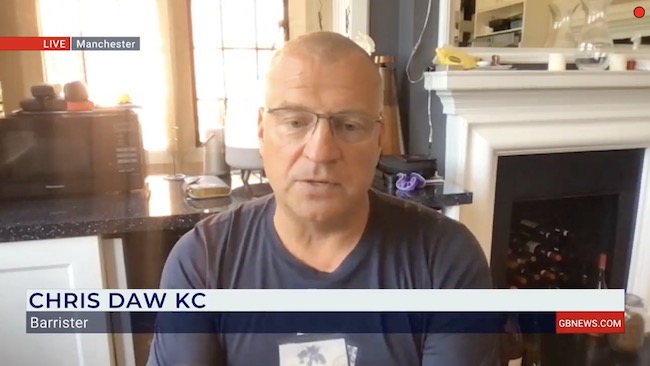‘This is more of an exercise in psychological therapy for Prince Harry,’ says KC

PRINCE Harry’s court case appears to be more about psychological therapy than a “genuine and serious piece of litigation”, according to a prominent barrister.
Chris Daw KC told GB News: “Everything I’ve heard so far suggests that this is more of an exercise in sort of psychological therapy for Prince Harry than a realistic prospect of successful legal action because there’s so much speculation in that which he has put before the court.
“He would just say, ‘well, I got this from my lawyers’. That’s not going to wash, and it’s quite a risky thing to say because ultimately what passes between client and lawyer is, generally speaking, protected as legal privilege.
“But if you start to blurt out what your lawyers have told you, then potentially there could be a potential for that to come into the evidence.
“So I think this whole process has the flavour of something other than a genuine and serious piece of litigation.”
In a discussion with Mark Longhurst during GB News Live, he continued: “He clearly does have the resources to commit to this.
“Generally speaking, when you are considering a very expensive piece of litigation, you would already have evidence that would cross that threshold of the balance of probabilities before you issue the claim, otherwise not only are you going to spend a huge amount of your own money and bringing the claim, but you’re going to end up having to pay the costs of the other side which will be equal if not even greater than his own.”
“I think the only way it gets back on track, and it’s rather difficult to see how it can happen, is with something more substantial in terms of evidence.
“There have been lots of questions about articles which it turns out are re-hashed articles from other newspapers or already in the public domain, so could easily have come to the Mirror journalist via that route rather than by hacking.”
He added: “All of this, it seems to me and the flavour of Harry’s evidence is much more emotional than legal and courts of law are not places where people’s emotions are supposed to play out, particularly not, as it were, for the entertainment of the public, which I suspect is about as much as bit as has been derived from this process so far.”




